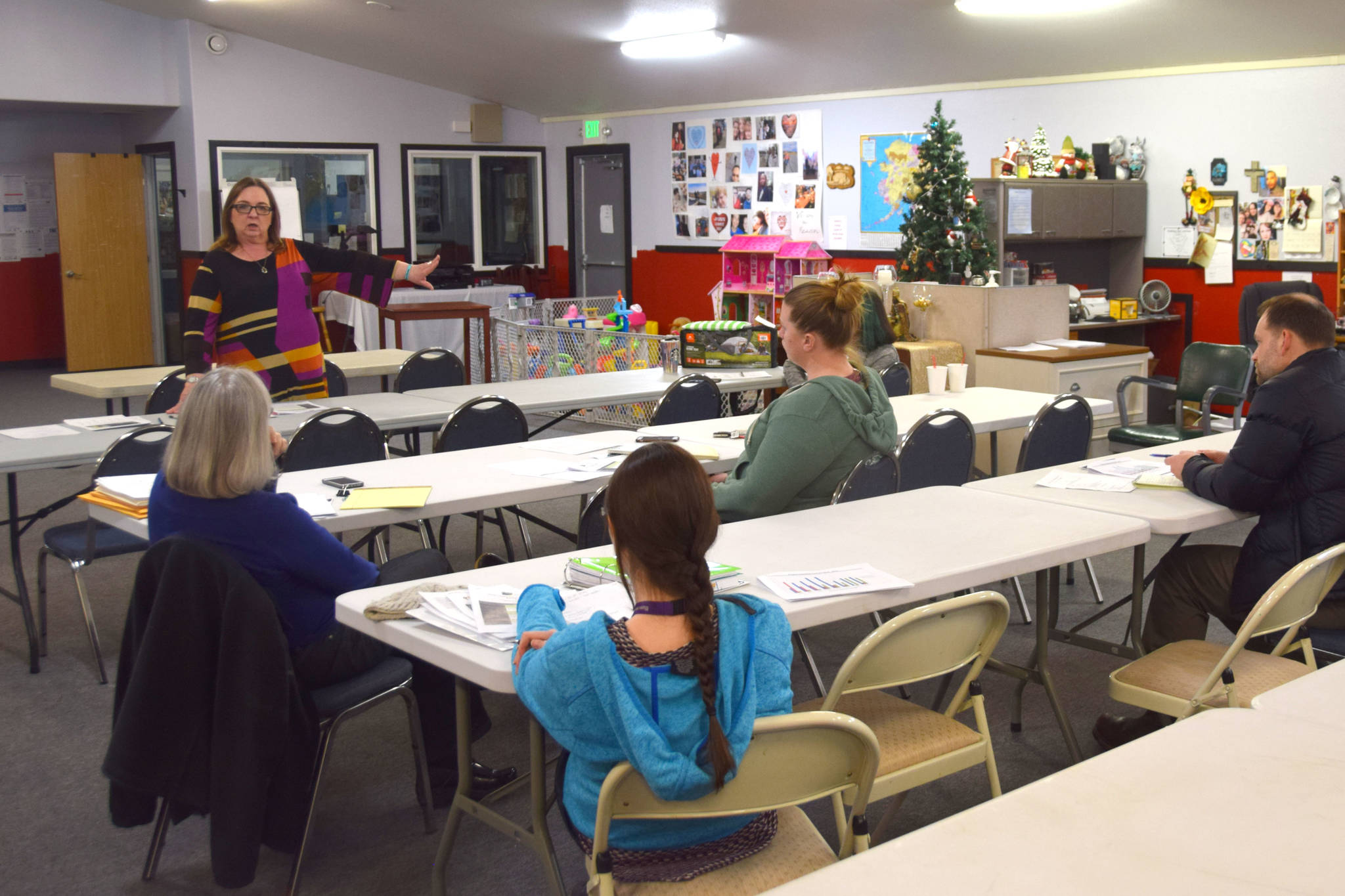Members of the community gathered for a Shelter Development Workgroup at Love, INC on Thursday to discuss expanding shelter access across the peninsula.
Love, INC Executive Director Leslie Rohr led the meeting, and laid out two major priorities for the workgroup going forward: To create emergency cold-weather shelters by coordinating with churches in the community, and to acquire a location that could function as transitional housing for homeless families. Both of these services are currently lacking on the Kenai Peninsula, with shelter access limited to places like the LeeShore Center, which focuses on women experiencing domestic violence, and Friendship Mission, which only serves men.
The goal of organizing an emergency cold-weather shelter service could be accomplished soon, Rohr said.
The policies and procedures created by Anchorage’s emergency cold-weather shelter system have been reviewed by Love, INC and adapted to fit a model that would work on the peninsula. The plan is for a group of churches to open their doors and serve as emergency shelter when the temperature drops below a certain point, which Rohr said would be 20 degrees Fahrenheit. The churches involved would share the responsibility on a rotating list, and the list would be posted publicly so that people can know which church will act as the cold-weather shelter on any given night.
Rohr confirmed that at least one local church has signed on to be a part of the rotation, and another church has offered a bus that could potentially be used as fixed-route transportation to and from the shelter locations. Four volunteers would be needed each night, two male and two female, to check people in and out and to stay awake through the night. To that end, Rohr said that fliers will be sent out soon announcing training for potential volunteers.
As far as supplies, Love, INC was able to collect a surplus of blankets and sleeping mats from this year’s Project Homeless Connect, but more will still need to be acquired and donated.
Once the cold-weather shelters are operational, members of the workgroup said they would expect around 30 individuals to use the shelter on any given night. While there is no definite timeline on getting the cold-weather shelter service up and running, Rohr said that she is optimistic about making it happen by next winter.
The other goal of the workgroup is to establish a transitional housing facility for homeless families in the area where none currently exists. At Thursday’s meeting, Rohr emphasized that this goal still faces a few hurdles. The workgroup has looked at several properties around Kenai and Soldotna as potential locations for the facility but has not yet made any final decision regarding location. Rohr said that they have begun reaching out to real estate agents who can assist with finding an ideal building or lot to acquire.
Bryan Taylor, associate planner for economic development, attended the workgroup meeting as a representative of the City of Soldotna and said that the city is ready to work with the group on discussing zoning regulations and any statutes or ordinances that the transitional housing would need to follow once a location is established.
The workgroup’s transitional housing project is based on a housing-first approach to combating homelessness that organizations around the country have adopted in recent years,
Public health nurse Sherra Pritchard said focusing on addressing housing issues as the first step is based on the notion that housing is a social determinate of health. “Water, shelter, food. If you don’t have that, it’s hard to worry about anything else,” said Pritchard.
During Thursday’s meeting, Rohr cited data received from Juneau’s housing-first initiative that illustrates the effectiveness of the approach. One of the most noticeable impacts was on the use of public services. Tracked over a six-month period before and after transitional housing was established, there were 230 fewer ER visits by homeless individuals and 495 fewer contacts with the Juneau police department, according to data compiled by the University of Alaska’s School of Social Work.
The next planned meeting for the workgroup is on April 4, and in the meantime the group will continue scouting locations for transitional housing and training volunteers for the emergency cold-weather shelters.
• Contact Brian Mazurek at bmazurek@peninsulaclarion.com

